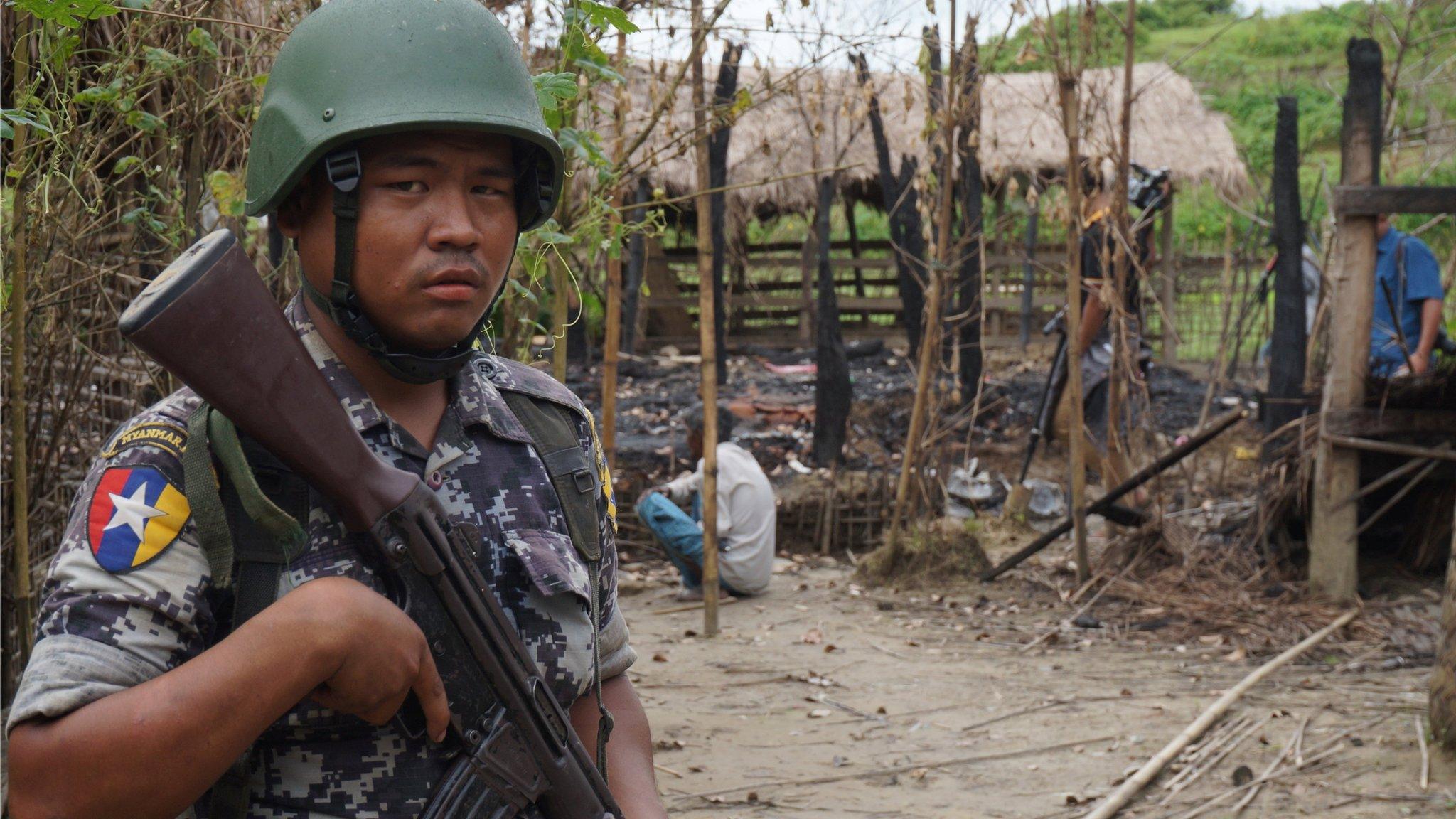Myanmar conflict: Aung San Suu Kyi 'must step in'
- Published
The BBC's Sanjoy Majumder treks through difficult terrain with people fleeing Myanmar
The UN's special rapporteur on human rights in Myanmar has criticised the country's de facto leader, Aung San Suu Kyi, for failing to protect the Rohingya Muslim minority.
Yanghee Lee said the situation in Rakhine was "really grave" and it was time for Ms Suu Kyi to "step in".
Her comments came as the number of Rohingya fleeing to Bangladesh reached 87,000, according to UN estimates.
That is more than the exodus after the October 2016 violence in Rakhine.
Both outpourings were sparked by attacks by Rohingya militants on police posts which triggered a crackdown by the Burmese military.
The Rohingya are a stateless Muslim ethnic minority who have faced persecution in Myanmar. Many of those who have fled describe troops and Rakhine Buddhist mobs burning their villages and attacking civilians.
Satellite images show many fires across northern parts of the state, and Human Rights Watch has released an image which it says shows that more than 700 homes were razed in one Rohingya village.
The military says it is fighting a campaign against Rohingya militants who are attacking civilians. Independently verifying the situation on the ground is very difficult because access is restricted.
Rohingya families are living in makeshift shelters in refugee camps
What did Yanghee Lee say?
The UN special rapporteur said the scale of the destruction this time, compared to October, was "far greater".
"The de facto leader needs to step in - that is what we would expect from any government, to protect everybody within their own jurisdiction," she said.
Her sentiments were echoed by Nobel Peace laureate Malala Yousafzai, who said she was waiting to hear from Ms Suu Kyi - who has not commented on the crisis since it erupted.
Allow X content?
This article contains content provided by X. We ask for your permission before anything is loaded, as they may be using cookies and other technologies. You may want to read X’s cookie policy, external and privacy policy, external before accepting. To view this content choose ‘accept and continue’.
"The world is waiting and Rohingya Muslims are waiting," Ms Yousafzai said.
Ms Su Kyi, who lived under house arrest for years for her pro-democracy activism, is not the president but is widely seen as Myanmar's head of government.
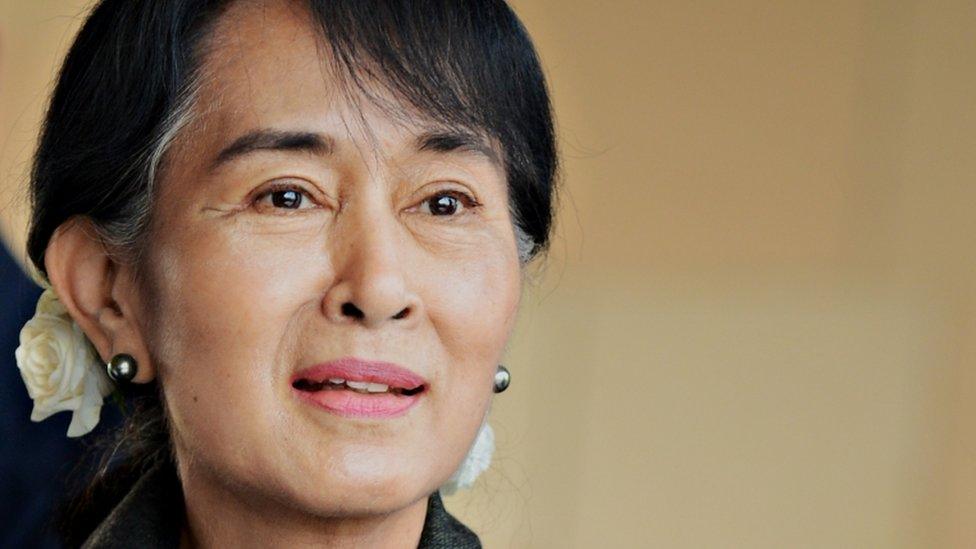
Ms Suu Kyi denied there was ethnic cleansing of the Rohingya in a BBC interview in March
She has been criticised in the past for failing to admonish the powerful military, which ruled Myanmar for decades and retains 25% of parliamentary seats.
Ms Lee said that Ms Suu Kyi was "caught between a rock and a hard spot", but added: "I think it is time for her to come out of that spot now."
Is there a regional backlash?
Muslim nations in South East Asia and further afield are voicing concern over the plight of the Rohingya, and some small protests have been reported.
On Sunday a petrol bomb was thrown at the Myanmar embassy in the Indonesian capital, Jakarta. Protests have also been held and on Monday Indonesia's Foreign Minister Retno Marsudi met Ms Suu Kyi to discuss the crisis.
In Malaysia, which is home to tens of thousands of Rohingya refugees, Prime Minister Najib Razak hit out at the "dire situation" facing the Rohingya.
Allow X content?
This article contains content provided by X. We ask for your permission before anything is loaded, as they may be using cookies and other technologies. You may want to read X’s cookie policy, external and privacy policy, external before accepting. To view this content choose ‘accept and continue’.
The Maldives says, external it is severing all economic ties with Myanmar until it stops violating the Rohingyas' human rights, while Pakistan's foreign ministry said , externalit was "deeply concerned over reports of growing number of deaths and forced displacement of Rohingya Muslims". A protest was also reported in a district in Indian-administered Kashmir.
In Chechnya, thousands of people took part in an official rally at which strongman ruler Ramzan Kadyrov called for the "guilty to be punished". In Russia, 17 people were detained near the Myanmar embassy for "violating public order", a Russian report said.
In Central Asia's Kyrgyzstan, a football international with Myanmar has been cancelled, apparently because of a plan by some social media users to protest ahead of the Asian Cup qualifier.
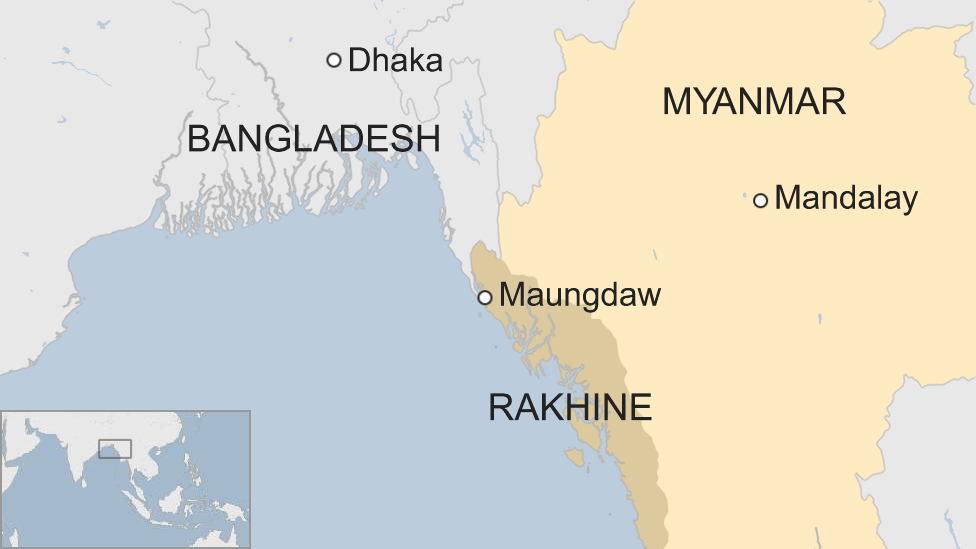
What is the situation at the Bangladesh border?
Since the militant attacks on 25 August, Rohingya families have been streaming north to the border. Dozens are reported to have died trying to cross the Naf river which forms part of the border.
Bangladesh border police are allowing the refugees in, despite government orders to stop them, a BBC correspondent on the border says.
A border guard told AFP news agency that more people were arriving than last time. "If it continues then we will face serious problems. But it's impossible to stop the flow, these people are everywhere," he said.
Vivian Tan, a spokeswomen for UN refugee body UNHCR, who is on the Bangladesh border, said people arriving at refugee camps were "in very bad shape".
"They say they have not eaten for days, not since they fled their homes. They've been surviving on either groundwater or rainwater. They've been walking for days, they're physically exhausted, they're probably traumatised.
"We're seeing a lot of women and very young children, some newborn, and these babies have been exposed to the elements for days so they're very very weak and they need medical attention.
"The numbers are really alarming and they are growing," she said.
Inside Rakhine, the violence has forced thousands of Buddhist residents to flee south, according to the government.
Khin Thandar Oo, a resident of a village in northern Rakhine, told the BBC people had missed meals for two days in a row.
"There is only enough to feed the children. We are afraid of those Muslims so dare not go out of the village to work on our farms."
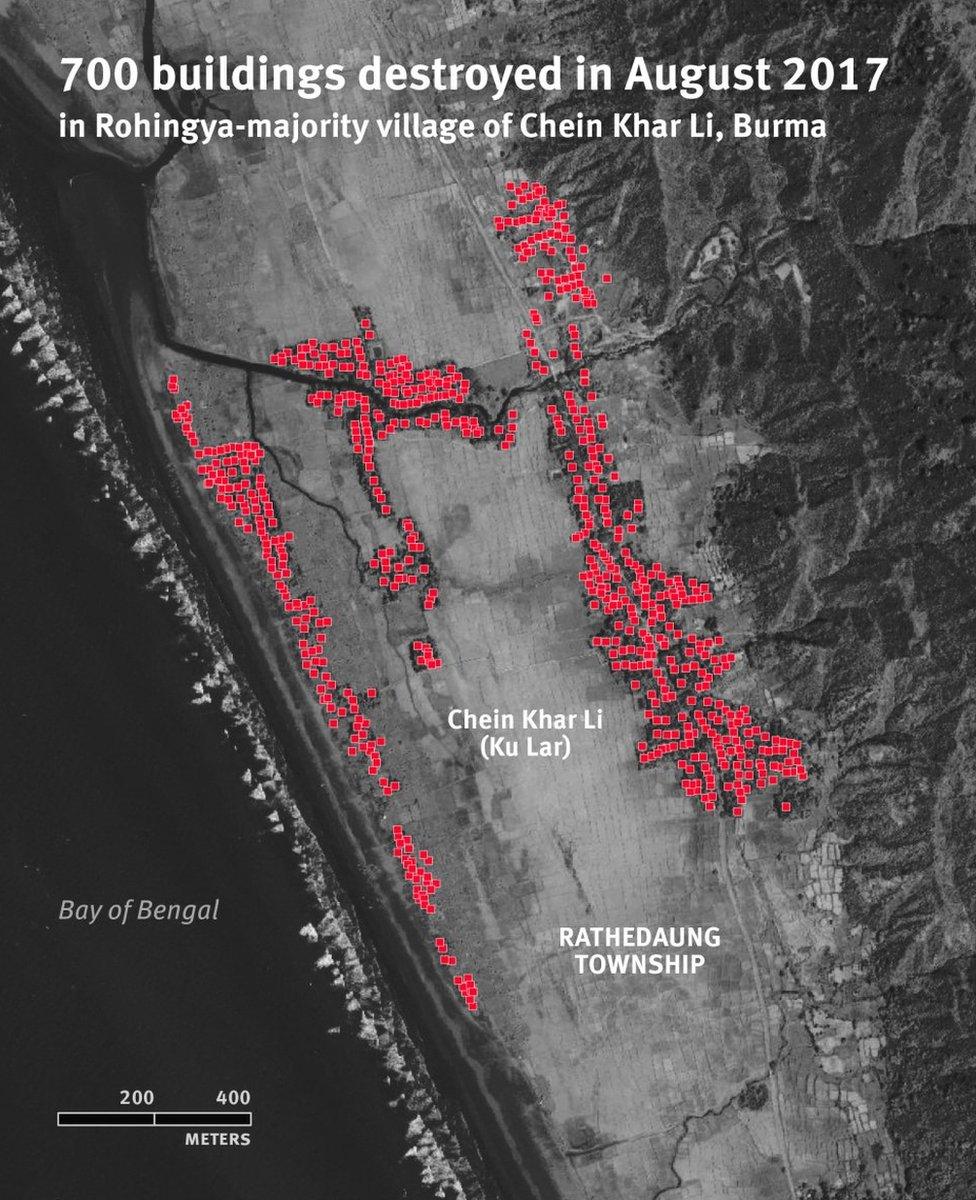
Human Rights Watch released this image, marking buildings it says have burned down
- Published4 September 2017
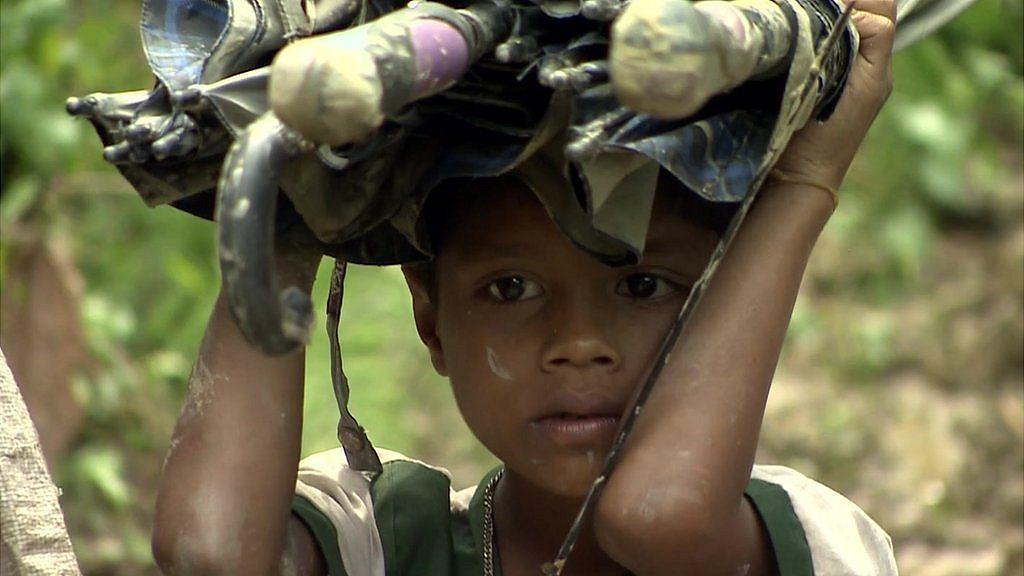
- Published2 September 2017
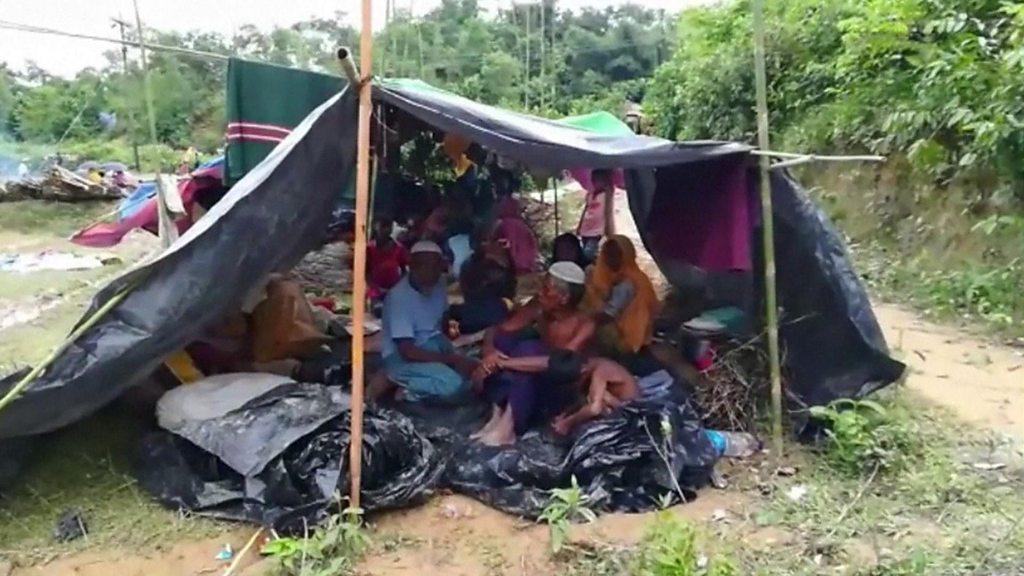
- Published31 August 2017
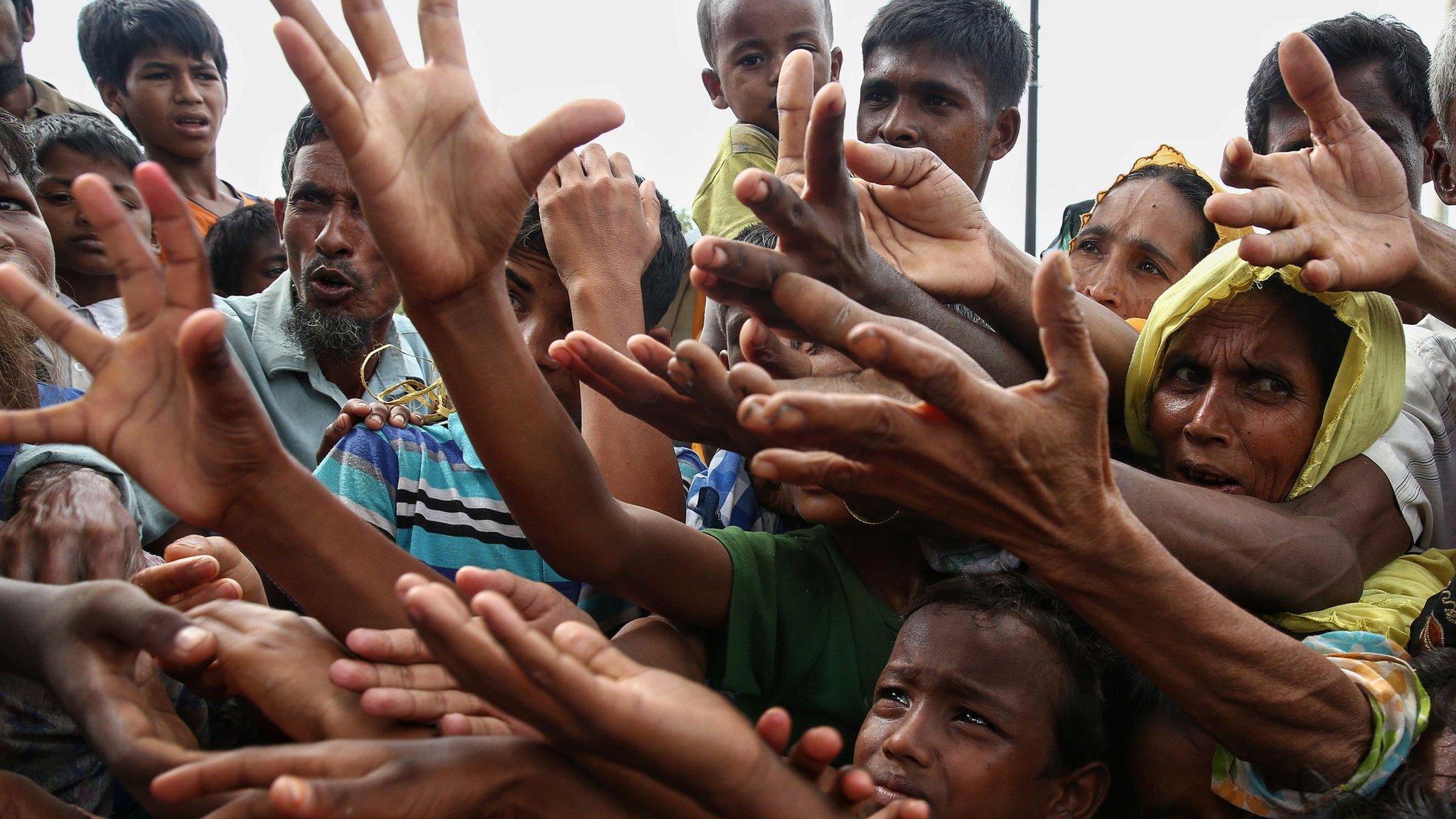
- Published2 September 2017
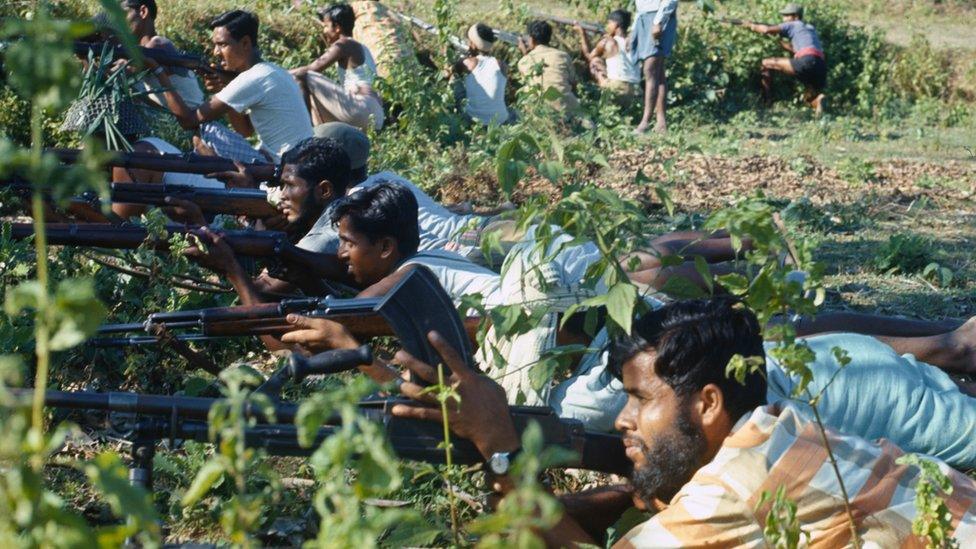
- Published19 September 2017
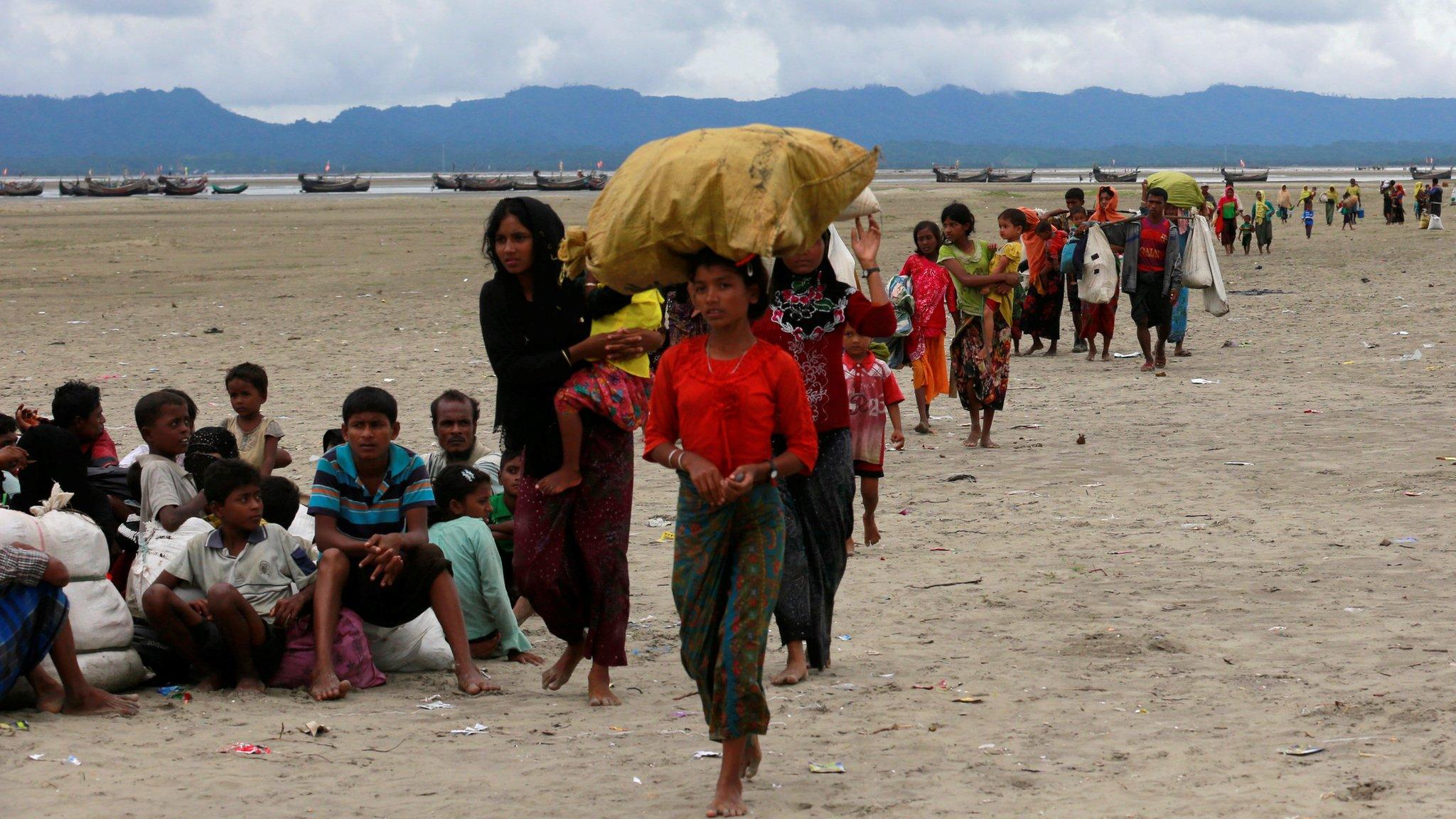
- Published24 August 2017
